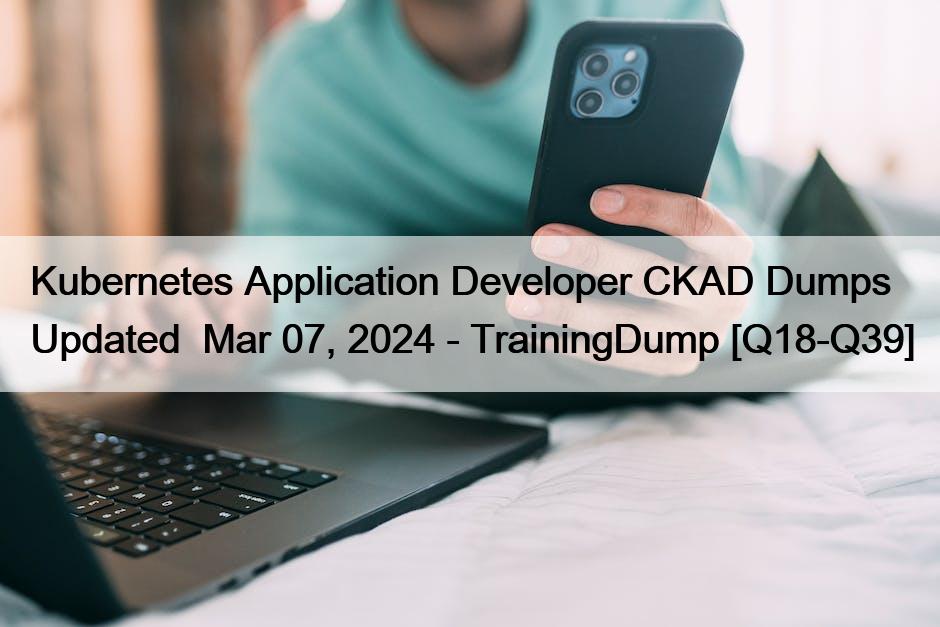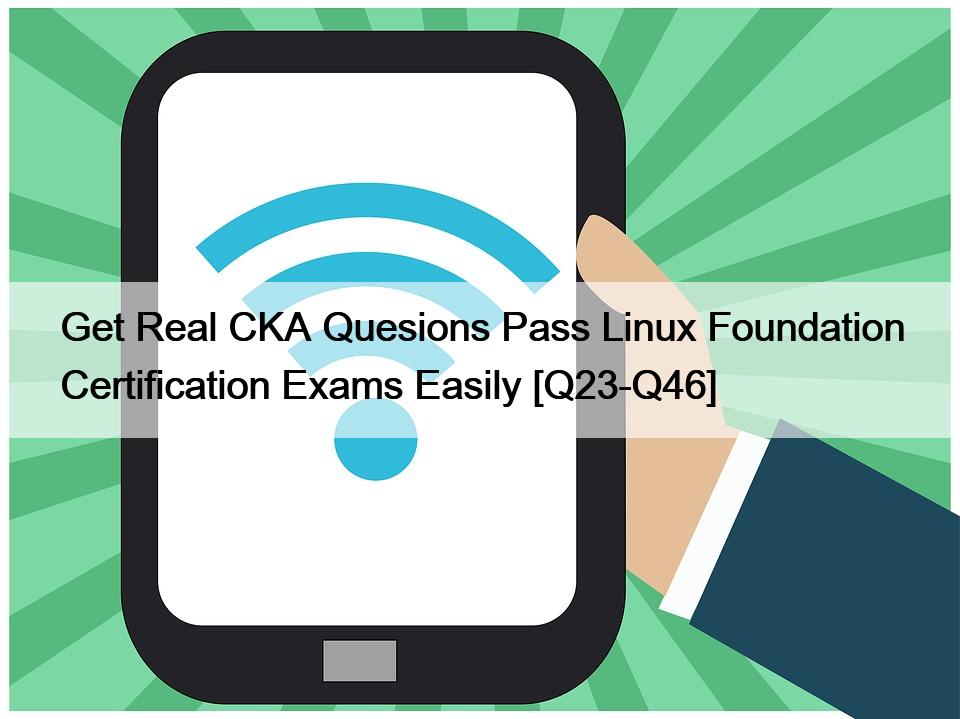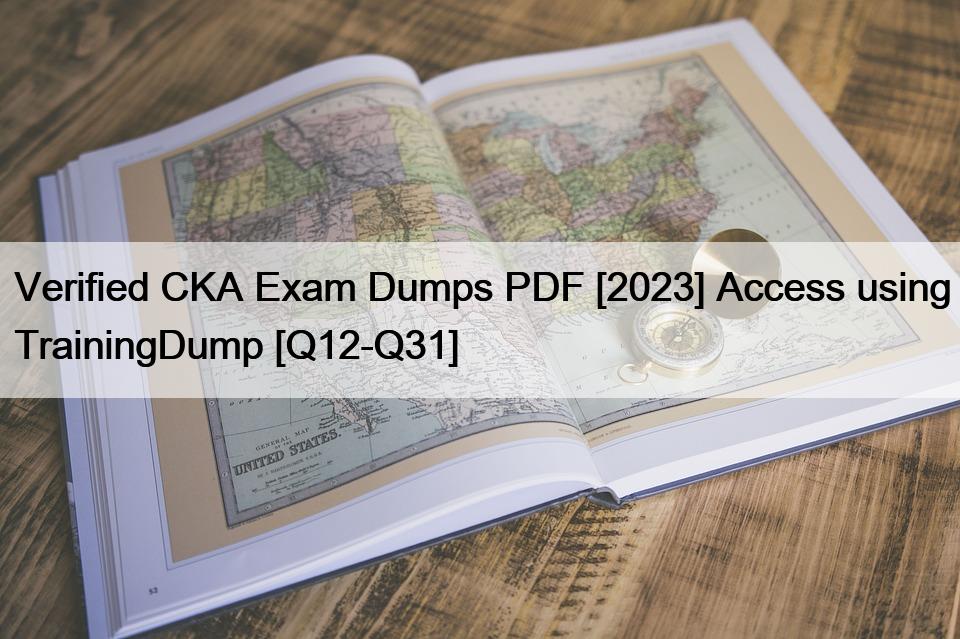100% Free Kubernetes Application Developer CKAD Dumps PDF Demo Cert Guide Cover
PDF Exam Material 2022 Realistic CKAD Dumps Questions
Please go to
100% Free Kubernetes Application Developer CKAD Dumps PDF Demo Cert Guide Cover [Q11-Q31] to view the test
CNCF Certified Kubernetes Application Developer Exam (v1.0)
If you are developing distributed applications running on Kubernetes, you need to know how to build, deploy, and maintain the applications in production environments. Ease of use and management, as well as rapid innovation, are the hallmarks of this fast-growing technology. Professions change fast, but the experience remains valuable. Leader in cloud computing, Google is used to shifting deadlines and demands, and can’t quite move at the same pace as others in the market. Provider Google also stands at the center of the digital universe, making them indispensable in open source communities. Quickly enter the Kubernetes ecosystem, and learn how to set up and deploy Kubernetes clusters.
Professional certification on Google’s software is hard to find. CNCF Certified Kubernetes Application Developer, on the other hand, can be obtained on the first try. CNCF CKAD Dumps is a multi-node cluster certification, which means that you need about 16 vCPU and at least 30 GB of RAM to complete the exam. A single-node cluster can be created using a laptop. Tough to pass? Even if you do fail the first time, for a limited time, you will receive a free retake. Retakes are given after a waiting period of 30 days. Terms are non-negotiable, and it will take effect after the exam. The exam is not only available in English but also in Chinese, Spanish, French, Italian, Norwegian, Portuguese (Brazil), Dutch, Swedish, Finnish, and Danish. Content may vary by language. Drive your career forward with your new qualification.
What is the Kubernetes dashboard?
The dashboard lets you manage your own cluster, see the status of large clusters, manage secrets, and modify configuration settings. Learn about your examples and use them as a template for your own work. It is helpful for administration and monitoring. It is like the MMC interface in Windows, but all administration is done directly from the Kubernetes command line. You can use it to manage secrets and passwords to increase security. Helped to create stable clusters. You can also use it to deploy applications and configure their services. CNCF CKAD Dumps is how you can pass the exam with flying colors and score more points. It will make managing your Kubernetes cluster easier and more efficient for you. Simple to use, and you can manage your cluster with a few commands. Useful to you when you are configuring the cluster. You need to run the command to start it for the first time. You can use it instead of kubectl or Kubernetes’s web interface. Systems administrators or deployment engineers who use Kubernetes with the help of the dashboard.
Linux Foundation CKAD Exam Syllabus Topics:
| Topic |
Details |
| Topic 1 |
- Configuration – Demonstrate basic understanding of NetworkPolicies
- Understand Services
- Services & Networking
|
| Topic 2 |
- Define an application’s resource requirements
- Understand ServiceAccounts
|
| Topic 3 |
- Understand how to monitor applications in Kubernetes
- Understand LivenessProbes and ReadinessProbes
|
| Topic 4 |
- Core Concepts – Create and Configure Basic Pods
- Understand Kubernetes API primitives
|
| Topic 5 |
- Understand how to use Labels, Selectors, and Annotations
- Understand Deployments and how to perform rollbacks
|
| Topic 6 |
- Multi-Container Pods – Understand Multi-Container Pod design patterns
|
| Topic 7 |
- Pod Design – Understand Jobs and CronJobs
- Understand Deployments and how to perform rolling updates
|
| Topic 8 |
- State Persistence- Understand Persistent Volume Claims for storage
|
| Topic 9 |
- Observability – Understand debugging in Kubernetes
- Understand container logging
|
Updated Linux Foundation CKAD Dumps – PDF & Online Engine: https://www.trainingdump.com/Linux-Foundation/CKAD-practice-exam-dumps.html






